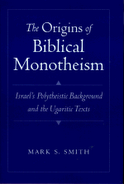THE NEW YORK TIMES
Published: May 17, 2008
From the grave, Albert Einstein poured gasoline on the culture wars between science and religion this week.

A letter the physicist wrote in 1954 to the philosopher Eric Gutkind, in which he described the Bible as “pretty childish” and scoffed at the notion that the Jews could be a “chosen people,” sold for $404,000 at an auction in London. That was 25 times the presale estimate.
The Associated Press quoted Rupert Powell, the managing director of Bloomsbury Auctions, as describing the unidentified buyer as having “a passion for theoretical physics and all that that entails.” Among the unsuccessful bidders, according to The Guardian newspaper, was Oxford evolutionary biologist Richard Dawkins, an outspoken atheist.
The price makes the Gutkind letter one of the best sellers among Einstein manuscripts. That $404,000 is only a little less than the $442,500 paid for the entire collection of 53 love letters between Einstein and his first wife, Mileva Maric, at an auction at Christie’s in New York in 1996. At that same auction a paper by Einstein and his best friend, Michele Besso, attempting a calculation that would later be a pivotal piece of his crowning achievement, the General Theory of Relativity, went for $398,500.
Diana L. Kormos-Buchwald, a historian at the California Institute of Technology and head of the Einstein Papers project, said she was not surprised that the Gutkind letter, which was known to Einstein scholars, fetched such a high price.
“It is an important expression of Einstein’s thoughts and views on religion, on Judaism, on his views about God and religious texts,” she wrote in an e-mail message. She said the letter, which was not written for publication, was “concise and unvarnished” and more straightforward than the metaphors he usually turned to in public.
Gerald Holton, a historian of science at Harvard and a longtime Einstein expert, also was not surprised. He said Einstein’s marketability had been improved by the last few years of hoopla about the 100th anniversary of relativity, which included his selection as Time magazine’s Man of the Century in 2000, and several new biographies. Dr. Holton described the letter as “a feat of eloquent Credo in short form.”
Einstein, as he says in his autobiographical notes, lost his religion at the age of 12, concluding that it was all a lie, and he never looked back. But he never lost his religious feeling about the apparent order of the universe or his intuitive connection with its mystery, which he savored. “The most incomprehensible thing about the universe is its comprehensibility,” he once said.
“If something is in me that can be called religious,” he wrote in another letter, in 1954, “then it is the unbounded admiration for the structure of the world so far as science can reveal it.”
Einstein consistently characterized the idea of a personal God who answers prayers as naive, and life after death as wishful thinking. But his continual references to God — as a metaphor for physical law; in his famous rebuke to quantum mechanics, “God doesn’t play dice”; and in lines like the endlessly repeated, “ Science without religion is lame, religion without science is blind” — has led some wishful thinkers to try to put him in the camp of some kind of believer or even, not long ago, to paint him as an advocate of intelligent design.
Trying to distinguish between a personal God and a more cosmic force, Einstein described himself as an “agnostic” and “not an atheist,” which he associated with the same intolerance as religious fanatics. “They are creatures who — in their grudge against the traditional ‘opium for the people’ — cannot bear the music of the spheres.”
The problem of God, he said, “is too vast for our limited minds.”
Einstein’s latest words offer scant comfort to the traditionally faithful.
In the letter, according to the A.P. account, he wrote that “the word God is for me nothing more than the expression and product of human weaknesses, the Bible a collection of honorable but still primitive legends which are nevertheless pretty childish.”
As for his fellow Jews, he said that Judaism, like all other religions, was “an incarnation of the most childish superstitions.”
He claimed a deep affinity with the Jewish people, he said, but “as far as my experience goes they are also no better than other human groups, although they are protected from the worst cancers by a lack of power. Otherwise I cannot see anything ‘chosen’ about them.”
|



0 comments:
Post a Comment